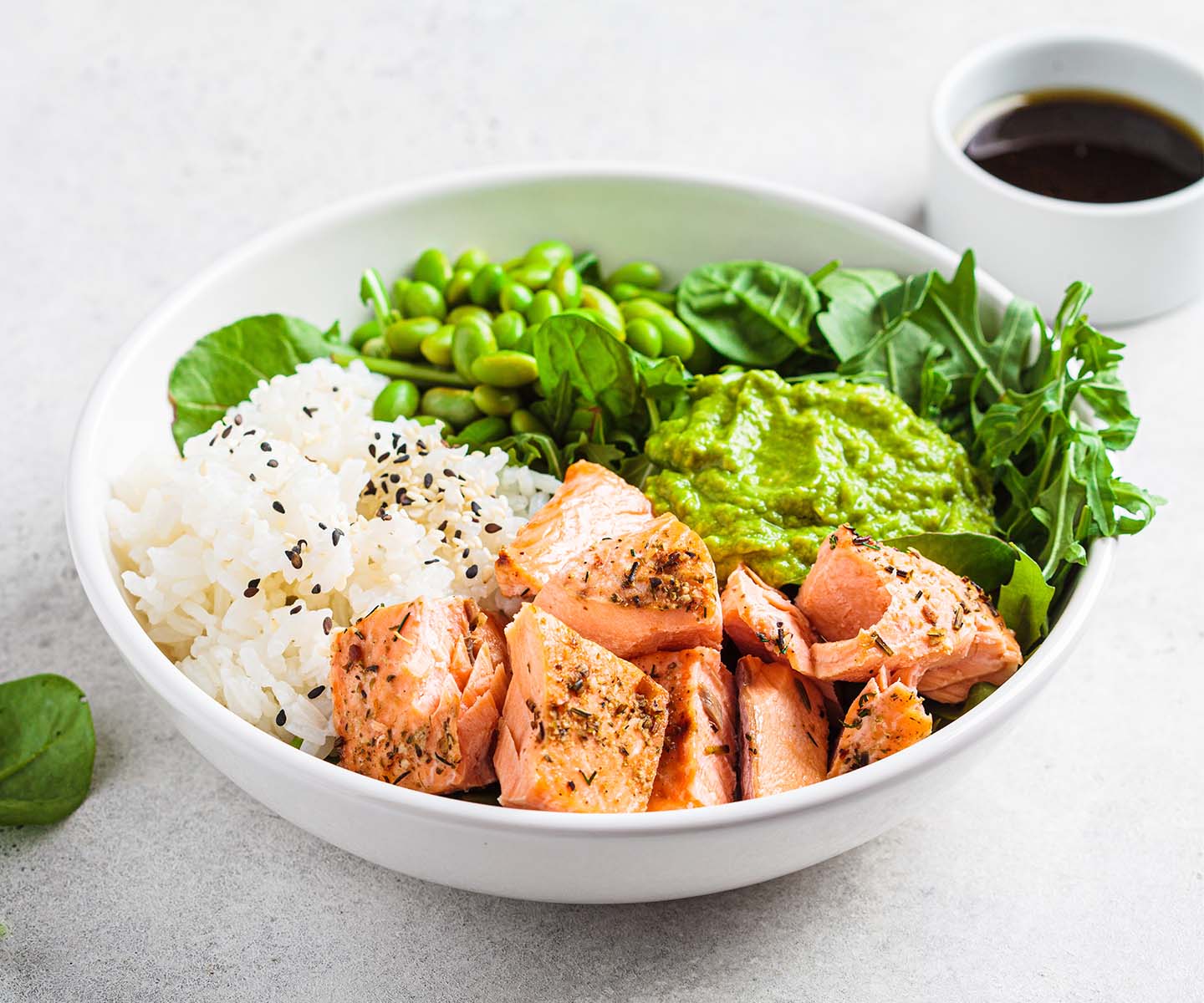“Omega-3 fatty acids play an important role in heart and brain health,” says the American Heart Association. They recommend eating two servings of fish per week as part of a heart-healthy diet. Yet most people don’t consume enough omega-3s, they explain. As we focus on preventive strategies for heart disease during American Heart Month, many people may wonder: are pills or plant sources like walnuts just as effective? Here are some answers from the experts. But first, some basics.
Omega-3 basics
The Adequate Intake (AI) for omega-3s, as set by the Food and Nutrition Board of the Institute of Medicine, is 1.6 g for adult men and 1.1 g for adult women (higher for pregnancy or lactation). This is not a “requirement” level—only an estimate of what it takes to ensure nutritional adequacy, explains the NIH. An AI is set when there is not yet enough evidence to set a Recommended Dietary Allowance (RDA).
Best known omega-3s that are important for health are eicosapentaenoic acid (EPA) and docosahexaenoic acid (DHA). These are sometimes called the “marine omega-3s” because they are primarily found in seafood.
Plant sources & ALA
Plant sources generally offer their omega-3s in the form of alpha-linolenic acid (ALA). Plant foods high in ALA include flaxseed, soybean, canola oil, chia seeds, and walnuts. These are often touted as omega-3 sources because ALAs can be converted to EPA and then DHA in the body. One thing to know about ALA, though, is the conversion rate is 15% at best (NIH).
Explains Harvard Health, “ALA is a true essential fat because it cannot be made by the body, and is needed for normal human growth and development. It can be converted into EPA and DHA, but … we are still uncertain whether ALA alone can provide optimal intakes of omega-3 fatty acids.” Nevertheless, they encourage intake of ALA for health and note that it “may offer modest protection against cardiovascular disease and type 2 diabetes.”
To meet nutrient needs, the NIH explains we need to consume EPA and DHA directly rather than relying on ALA conversion because it is “the only practical way to increase levels of these fatty acids in the body”. The American Heart Association generally recommends that people who have heart disease consume 1000 mg daily of these marine omega-3s.
Omega-3 & fish oil supplements
Fish oil supplements are often made from krill oil or cod liver oil. A vegetarian alternative is algal oil, which goes straight to the source of fish omega-3s; fish get this nutrient by consuming algae. There may be variations in bioavailability among supplements, but all are useful sources, says NIH, and limited research suggests algal oil is an effective substitution for vegetarians.
“Research strongly supports that eating a diet with fatty fish weekly provides protection from cardiovascular disease,” says Harvard Health. Are fish oil supplements just as effective? Harvard concludes: probably not. “Many large clinical trials have not shown that taking omega-3 supplements provide the same protection,” they say.
The American Heart Association summarizes ongoing research about omega-3 supplements and notes that recent research suggests that omega-3 supplements may not reduce LDL or “bad” cholesterol, but they may be valuable in reducing blood triglycerides and have other benefits. This is a topic of ongoing investigation, and individual consultation with a physician is always the best practice. In the meantime, eating at least two servings of fish per week is a heart-healthy idea.








